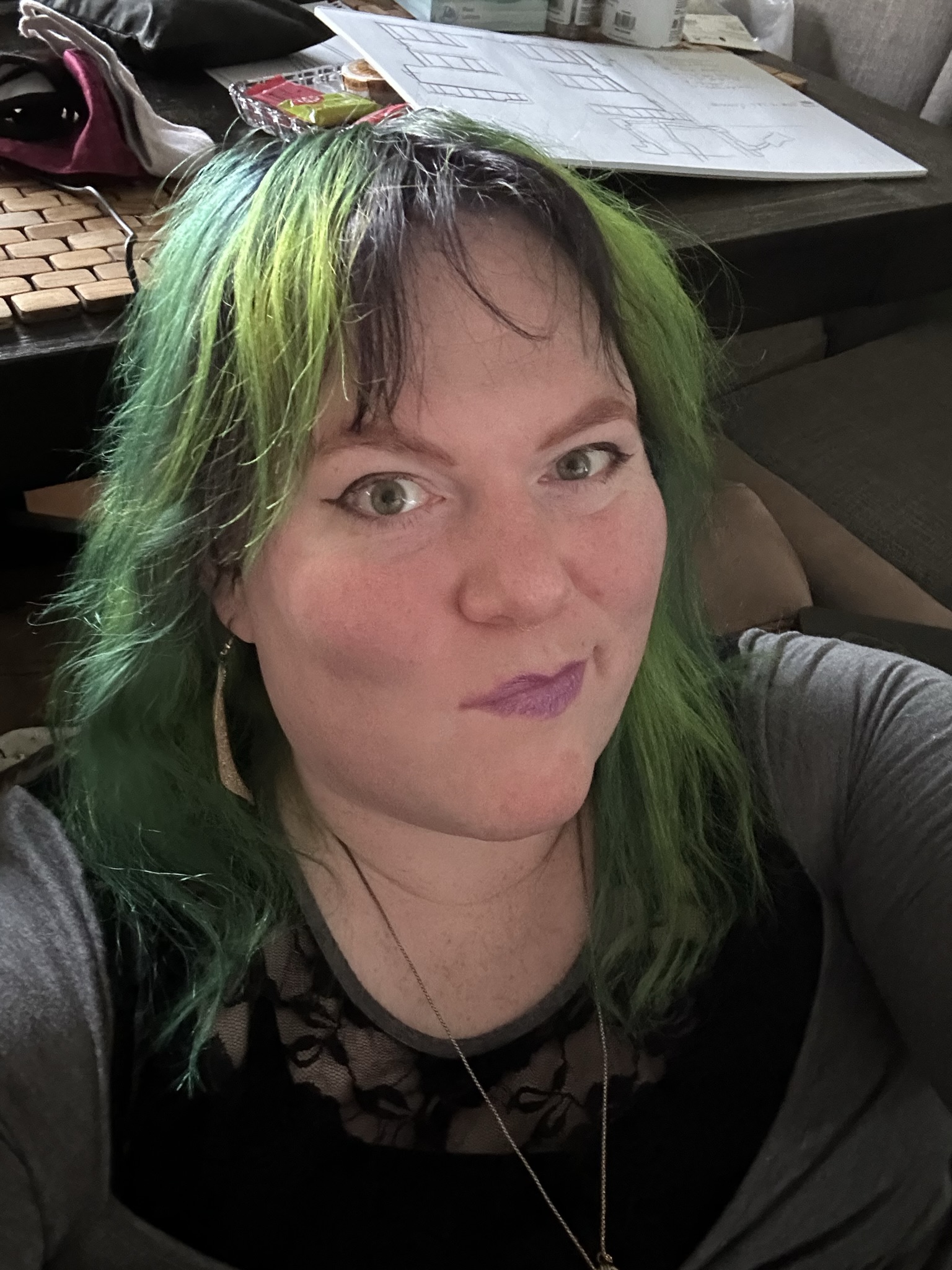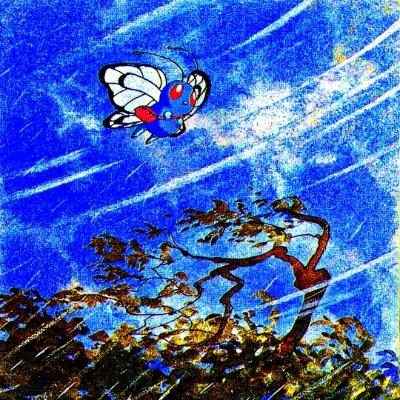So I started oral estradiol 2mg and bicalutimide 50mg about 2 weeks ago. A week in, I started feeling these weird pains in my body. They felt like small stabbing pains that immediately dulled - almost like the pain of getting an injection, and were always in my legs, arms, or chest.
I asked my doctor about it, and he had no idea. He just said they weren’t a reported side effect of either med, and the only way to tell if it was the meds was to stop them.
I’m really paranoid about, like, fucking dying, so I stopped my medication 3 days ago and the pains have subsided. I was just wondering if anyone here has shared my experience. I’d like to know what the hell that was, and if it’s safe to continue treatment.
I’ve not heard about a common reaction like that to estrogen, but I’m not a doctor. No clue about bicalutimide though.
Can confirm I didn’t have this when I took bicalutamide, nor is it a typical side effect.
When I started HRT, my doctor had me ramp up the antiandrogen slowly over the course of 4 weeks. It was spironolactone and that caused some odd issues shortly after the increase day. Also I was on 4mg/day of sublingual estradiol. The weird feelings were weakness and an inability to regulate temperature, but nothing painful.
Other antiandrogens are available, it’s probably a good idea to make some sort of change to your medicine. Pain is usually an indication that something is wrong.
Not only slowly ramping up, but starting one then the other separately (i.e., starting one, then starting the other two weeks later) means you can isolate which one is causing you problems
@hildegarde @VerilyFemme hop gemmotherapy is HIGHLY efficient as an antiandrogenic. I used to use that in an artisanal form and my doctor said that it was as efficient as the strongest allopathic equivalent.
how does it work?
EDIT: nevermind, gemmotherapy is pseudoscience
EDIT2: I consumed large doses of licorice root, spearmint, and flax seeds before I had access to HRT because there is some evidence these reduce testosterone - I found it was not particularly effective, it made me feel weird, and my testosterone levels were in normal male ranges when tested.
@dandelion gemmotherapy is extracting multiple chemicals in plant via water, alcool and sugar and used the right way it is effective
it looks to be extracting embryonic tissues in particular during the plant’s germination (presumably hence the name)
@dandelion I had to stop cause the patch I used didn’t provided enough estrogen to compensate the lack of testostérone the gemmotherapy had produce
What did you have to stop?
Your testosterone and estrogen blood levels can be related, but are separate if you are using an anti-androgen. I would not rely on gemmotherapy as a medical anti-androgen.
@dandelion
I was using patch for my estrogen and after only 2 or such, months of using the gemmotherapy, I did blood tests and they revealed that my testostérone had fully went down and the doctor that was following m’y transition told that the result where comparable to if I had been taking the most powerful allopathic anti-androgen for monthsIt is possible the estrogen is responsible for the lowered estrogen, you do not know that the gemmotherapy is the reason your testosterone went down. When your body has sufficient estrogen, it will shut down production of testosterone. I know this because I did not take an anti-androgen and only took estrogen myself to suppress my testosterone production.
@dandelion
Because it doesn’t back up and fuel the whole capitalistic pharmaceutical empire doesn’t mean that it does not work. You’ll be glad these kind of “pseudo-science” exist when the legislations and fascism makes it impossible for u to get access to the allopathic chemicals we are depending on right now.I am not against pragmatic herbal remedies when they actually work (in fact, I vastly prefer them). I grow and harvest my own passionflower, for example, as a sleep aid. Drugs are drugs, they work regardless of whether you make them in a lab or grow them in a plant. Opiates work just as well from poppy seeds as they do from a pill, for example.
As I mentioned earlier, I also turned to herbal remedies for anti-androgen effects, though I actually used herbs that were shown in (admittedly, limited) scientific studies to lower testosterone, like licorice root, flax seed, and spearmint. I did not find this anywhere close to a suitable substitute for HRT, nor was it particularly effective at blocking testosterone. I continued to have male levels of testosterone in my blood when tested, and I continued to have physiological signs of that testosterone (body odor, involuntary erections at night, ample semen production, etc.).
However, gemmotherapy is categorically not an effective method, it is a kind of homeopathy that makes false claims about the special healing or medical properties of plant embryonic tissue extracted during germination - this is not based in the actual chemical or medical sciences that examine the effects of phytochemicals. That’s what makes it pseudoscience.
Of course it is possible still that the hops plant contains chemicals that have anti-androgen effects, but I go back to my original question: how does it work? I want to know what dose and preparation is actually effective, and why. What are the risks and side effects? This is no different than taking other drugs, because it comes from a plant doesn’t make it inherently safe.
Homeopathy dilutes chemicals to the point that they have no medical significance, purported benefits are thus placebo. It’s not clear to me whether gemmotherapy is likewise diluted or if you are actually consuming an extract with pharmacologically-relevant doses of the drugs. Your own experiences with blood testosterone levels dropping could be explained by the estrogen patches you were taking, if they got your blood estrogen levels consistently up to 200 pg/mL or higher, as that would be sufficient to block testosterone production.
If you are relying on the phytoestrogens of the hop plant as an anti-androgen, it’s not clear to me the risks of using phytoestrogens is worth the anti-androgen effects of that lesser form of estrogen, considering you already have access to bioidentical estrogen which is known to be much safer and directly estrogenizing than taking phytoestrogens. Monotherapy (where you take a large enough dose of estradiol to block testosterone production) would make more sense to suppress testosterone in that case than taking a hop extract in addition to estrogen patches (in terms of money, safety, and efficacy).
Maybe there are other anti-androgen chemicals in hops, but again I just want to know what those are, how they work, etc. - just like I would want to know about any other anti-androgen drug I would consider taking.
And of course, if HRT is taken away from you and you have no patches and nothing but phytoestrogens, it’s probably better than nothing (maybe - perhaps especially for pre-op and non-op women). I’ve looked into growing wild yams to extract phytoestrogens from, for example - but they rarely work the same or as effectively or safely as bioidentical estradiol, and usually you need a lab to meaningfully extract and convert those phytoestrogens into a useful estradiol.
In a context where estradiol is not available, the best source of it would actually be urine from cis women, since they excrete hormones directly in their urine (and probably from pregnant women since their hormone levels are typically much higher). Extracting the hormone from the urine and controlling the dose however would be difficult and require industrial inputs, e.g. methanol and silica gel. But in a worst case scenario you might get enough estrogen from a pregnant woman’s urine to help, though if we’re not extracting and injecting the estradiol and just drinking the urine, the liver will absorb ~80% of that estrogen and your blood levels will spike and elimination half-life is a few hours. So you will end up needing to drink urine a few times a day, and pray that there’s enough estrogen in that urine to be enough.
This random website I found claims peak estradiol levels in urine just before ovulation are around 14 mcg / mL, so drinking 500 mL of urine might give you at most 7 mg of estradiol, which seems decent for an oral route of administration, you might even drink half of it in the morning and the second half in the afternoon to help try to maintain more normal blood estrogen levels throughout the day.
So I think this is the most plausible way to get estrogen in a context where HRT is not available, but it sucks for a lot of obvious reasons. This is truly under apocalyptic conditions, though - ideally you would just find a grey or black market to buy the drugs through, because most likely there is someone around still manufacturing estradiol since even cis women need and thus society in general is invested in its production.
See https://lemmy.blahaj.zone/post/14985192 and paging @will_steal_your_username@lemmy.blahaj.zone
this seems similar to what she was describing, pain in legs after injecting estrogen
EDIT: I should say, I’ve never experienced this, even when I was taking bicalutamide. I did have some sensations I would describe like a body buzz, but it was never painful (was pleasant, even).
You might experiment with different doses and see if switching to spiro makes a difference. Might also try monotherapy, just see if any of those experiences are different.
But yes, bioidentical estrogen should be totally safe, esp. if you are injecting it or using it transdermally. Oral is still safe, but it’s very spikey, and arguably not as great:
Estradiol levels are found to rapidly rise on the order of ten times that of the peak of oral estradiol, then rapidly decline with an elimination half-life of a few hours (Kuhl, 2005).
For that reason I wouldn’t recommend oral, even though it’s so popular. I would assume negative side effects like mood swings, slower and uneven testosterone suppression, and low average estradiol blood levels are more likely on oral. Still, lots of people are fine on oral so it’s more something for you to experiment with and see what works best for you.
I should have specified in my post, but I was taking oral estrogen.
Unclear whether it matters or not, but you might experiment with other routes of administration as well as dose to see if they make a difference. Hopefully that other post will give you some helpful ideas, too, in case it’s related.
For me they stopped eventually, but was there constantly for a few days after each injection. I tried three different esters and thought the newest one worked because of different ingredients, but when I tried one of the previous ones again I had no pains. I dunno if it was caused by stress, if me doing more exercise or eating better helped, or really have any good explanation for what happened and why it stopped.
I also did have some random but minor pains when I first started HRT, before I tried injections, but it was very bearable and stopped within a few weeks. To me it seemed like different kinds of pains because my body got new instructions etc, like my ligaments changing, but I don’t really know. All I know is it was just briefly now and then before stopping.
sounds hopeful, yay! Glad that they eventually went away ❤️
Are the stabbing pains skin-deep like an insect sting, or deeper like a pulled muscle?
deeper, like a pulled muscle. My paranoid brain thought blood clots immediately buuuut that seems unlikely





